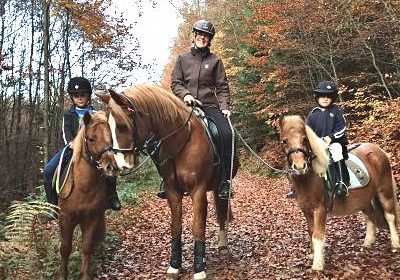Do I need a website and facebook? Does my business really NEED a website?
www.co.uk or www.com
Maybe you are a new small business and do not yet have a website. Perhaps you aim to rely on a Facebook page alone. Well that is fine in the very early stages of running your business but in the end you will need a website. For many small businesses a Facebook Business Page can provide a great online presence and can act as a ‘toe in the water’ before committing to your own website.
Why are we, and why am I in particular – a distance learning group tutor discussing this? Because we do not just offer distance learning courses, I mentor and support some of our students too.
Over the years a good number of my own students have gone solo in the equestrian world of work – or even in other lines of work, some were struggling with self worth – some couldn’t communicate. Most have gained a good grounding in equine management and completed the Lingfield Intermediate Diploma programme – along with that they gained confidence and faith in themselves. Many have gone on to gain Stages 1 2 and 3. They now work on a freelance basis doing a variety of things such as:
Running their own DIY yard, running a holiday centre with trekking yard attached, grooming, clipping, field clearing, tack sales, coaching or rug washing and one who is training to become a farrier, another working on high ropes. Some have asked us whether we think they need a business Facebook page and / or a website. I have therefore gathered these few thoughts which might help to clarify what you need and what people expect.
If you are selling anything at all and that includes a service of some sort – riding instructor, groom, tack etc., you really DO need a website as well as your Facebook business page.
Not only does a website look far more professional but it is important to realise that established and genuine businesses always have a website. Many people (and ‘people’ are your customers and clients) will only deal with a genuine and established business.
Some business owners will only deal with genuine and established businesses. If therefore, you aim to sell your services to another person who is running a small business be aware of this. Furthermore, if you wish to buy from other businesses be aware of how professional you may look to them. When searching online for goods or products or services, the fact that they have a website and how that website is presented makes a very plain statement of professionalism. If the website is poor and looks very amateur, it is obvious that the person running the business is amateur and may therefore be unprofessional.
If you are selling anything online it is a legal obligation to have your contact details available on your website – that means your street address as well as phone and email. If you prefer not to put your street address for some reason then it should be a post box address or service.
Whether you are selling products or services online or not, no address on a website implies that you are running an insubstantial business and not very professional business that could simply disappear overnight. Or it implies that you are trying to hide your earnings or yourself from someone. For whatever reason, it is not good business practice to avoid including a postal address.
Professional help and support:
Once you get going there are other options to consider: For real and professional help in marketing once you get going, you can do no better than to contact someone like Jenni Bush – The Equine Business Assistant. There are other business support people out there but Jenni is an equestrian herself and knows the business personally. That is a real boon. Jenni will support you and offer loads of good advice about how to market your growing business.
In the meantime whilst you are getting set up here are a few things to consider: Should my business have a Facebook page?
Well – considering that social media is used by most people who own a mobile phone these days, it seems crazy not to have a Facebook page for your work. It enables you to both connect and communicate with clients/customers. Providing you use it sensibly and appropriately, it can help you to get your business name out there and become more widely known and in fact can improve your image.
If like most people you start with a Facebook page, you must manage it sensibly and practice moderation in your posts, comments and advertising. Care needs to be taken with wording to be sure you do not upset anyone or cause any hurt, harm or offence in any way. If you are the sort of person who tends to jump up and down over some people’s posts, or who likes to comment on political, religious, popular comments, news and have forthright views etc., then maybe a Facebook business page is not for you.
Your personal page..
is not your business page. This is something that many confuse and muddle and tend to crossover. The business page and our personal page must remain separate. Do your clients and prospective clients need to see your entire life? Pictures of your children, your partner your day to day challenges, or you dressed in your new party outfit? Do they need to see images of you having a drink too many at that wedding / hen night or with friends ?
It is vital to remember that clients can be friends but not all friends are your clients. Your personal page is just that – your personal page for friends and family. Think about it, are you trying to sell to, or do you need to sell your business products or services to your friends and family?
Your friends and family can of course choose to follow your business page and maybe will promote it for you if they so choose This might tell you that they are supporting you but it would not be sensible to keep trying to sell them your services when you are having a meal with them or socialising with them. Keep the socialising and family and friends stuff for your personal page and keep business and sales stuff for your business page.
Take care also because actually it is against Facebook Terms “to use your profile (this is what they call your personal page) to represent something other than yourself”. If Facebook wants to they could remove your personal account – now as they do now allow you to set up a business page without a personal profile, that means you would lose your business page.
Read the Facebook guidelines here.
Reasons not to set up a Facebook page If you are going to use it simply to sell, sell, sell. A page which does nothing but sell sell sell, and push push push is going to be so boring few will maintain any involvement. What DO you need to do on this page? What you need to do is to socialise with clients and prospective clients and engage people with neat photos and posts, you need to communicate. If you are not going to do that and you are not going to respond to their comments and messages – well it is the same as ignoring the phone. The business page is for reinforcing your brand, and it is there to potentially improve your reputation. This can ultimately lead to sales/more clients.
Setting up a Business Page
Your business page along with your website becomes your shop window. Both should have similar branding and photos on the home / cover. Use the same name for both website and business page. Choose a short one if possible – they are easier to remember – and sometimes other listings you may choose to join have a limited number of characters for titles. The business page
This page could be a potential client/customer’s first impression of you and your business. Choose your profile picture and cover photo carefully. If your profile pic is a business logo invest in a good graphic designer – it will be worth it. Check your spelling, punctuation and capital letters – make it look professional.
Complete the contact details carefully too – remember what we discussed earlier! Then complete the ‘Story’. Automatic replies are worth utilising for private messages, particularly if the enquiry may be urgent and you only check them at the end of each day.
What can you post?
Thinking of new content regularly is not always easy, but some good areas to cover include: Any training or courses you have undertaken recently. This shows you keep up to date and aim to improve your service / product Success at any competition Your client’s success (with their permission) Useful tips. Humour. Life can be a bit serious sometimes, now and again include some fun in your posts.
Not only should you be thinking about marketing via a website and a Facebook page but you should also have your own LinkedIn Account – this is important in the business world. It can be a great place to network and find people who may well be useful to you in future. Look at several other people’s details on LinkedIn to see what you might need to include.
You need also to be marketing on Instagram – now that is slightly different in that it is photos predominately although IG is introducing more and more as time goes by.
Twitter is another slightly different platform – just like the others, use it as and when you can – they are all useful.
There are other platforms and some specifically for equestrians – some are aimed at the younger riders too. Check out all of them – don’t miss an opportunity but do make sure you are professional in your approach. Work hard to be inclusive in your work and your advertising and marketing. Do not ignore anyone or any group such as disabled people, people of different races, religions, LGBT, and consider people who may struggle with reading and writing too.
Find out which is the most popular social media platform amongst your target market and use that most often – but do not forget the others.
Don’t ignore any opportunities to get your name out there – use them all and use them well. If you are someone we helped and perhaps mentored in the past, well we would love to hear from you again. We can offer links and more.
Paula Clements
Mentoring helped:
Gail West Equestrian
Laura Mellor Photography
and those are just two



Receive latest news and industry insights straight to your inbox.